Madrid is the capital and largest city of Spain, boasting a population of roughly 3.3 million within the city proper and about 6.8 million in its metropolitan area. It's the second-largest city in the European Union, exceeded only by Berlin. Situated on the River Manzanares in the heart of the Iberian Peninsula at an elevation of approximately 650 meters, Madrid serves as the political, economic, and cultural hub of Spain and its surrounding autonomous community.
1902: Foundation of Real Madrid
Real Madrid was founded in 1902 and is one of the most widely supported teams in the world. The club was selected as the best club of the 20th century and is the most successful Spanish football club.
1903: Foundation of Atlético Madrid
Atlético Madrid was founded in 1903 and is well-supported in the city. The club is considered an elite European team, having won three UEFA Europa League titles and reached three European Cup finals.
1904: Recorded history of snow
Since 1904, recorded history of snow in Madrid. From January 7 to 9, 2021, Madrid received the most snow in its recorded history.
1919: Metro Founded
The Madrid Metro was founded in 1919 and underwent extensive enlargement in the second half of the 20th century.
1927: University City Planned
In 1927, plans were made to build a new University City (Ciudad Universitaria) in the district of Moncloa-Aravaca.
1929: Establishment of Las Ventas bullring
Las Ventas, the largest plaza de toros (bullring) in Spain, was established in Madrid in 1929.
May 1931: Burning of convents after riots
In May 1931, anti-clerical riots in Madrid led to the burning of convents, worsening the political environment.
1931: Casa de Campo ceded to municipality
In 1931, the Casa de Campo was ceded to the municipality following the proclamation of the Second Spanish Republic.
1931: Sabatini Gardens opened to public
In 1931, the Sabatini Gardens adjacent to the Royal Palace were opened to the public.
1931: Spanish Constitution legislates Madrid as capital
In 1931, the Spanish Constitution explicitly legislated Madrid as the capital of the country for the first time.
1931: Foundation of Real Madrid Baloncesto
Real Madrid Baloncesto was founded in 1931 and is the most successful team in Europe, with a record 11 EuroLeague titles.
1934: Insurrection largely failed
In 1934, an insurrection occurred in Madrid, but it largely failed to gain traction in the city.
July 1936: Madrid becomes Republican stronghold
In July 1936, Madrid became a stronghold of the Republican faction at the start of the Spanish Civil War.
November 1936: Battle in western suburbs
In November 1936, the western suburbs of Madrid were the scene of an all-out battle during the Spanish Civil War.
1937: Picasso's Guernica
In 1937, Pablo Picasso created his anti-war masterpiece, Guernica, which is housed in the Reina Sofía National Art Museum.
March 1939: Madrid falls to Francoists
In March 1939, Madrid fell to the Francoists, marking a significant turning point in the Spanish Civil War.
1939: EFE headquarters in Madrid
The Spanish international news agency EFE maintains its headquarters in Madrid since its inception in 1939.
January 1945: Record low temperature
On January 16, 1945, the lowest recorded temperature in Madrid's Retiro Park was −10.1 °C (13.8 °F) and at the airport was −15.2 °C (4.6 °F).
1948: Foundation of Club Baloncesto Estudiantes
Club Baloncesto Estudiantes was founded in 1948.
1953: Inauguration of the Edificio España
Following the Francoist takeover, architecture experienced an involution. The Edificio España was presented as the tallest building in Europe when it was inaugurated in 1953.
1953: Europa Press founded in Madrid
The second news agency of Spain, the privately owned Europa Press, was founded and headquartered in Madrid since 1953.
1956: 50,000 shacks scattered around Madrid
By 1956, wealth polarization in Madrid led to as many as 50,000 shacks scattered around the city.
1970: Population drop begins
From 1970 until the mid-1990s, Madrid's population dropped due to the growth of satellite suburbs.
1970: Higher Education Reform
In 1970, the Government reformed higher education, and the Central University became the Complutense University of Madrid and a new campus at Somosaguas was created to house the new School of Social Sciences.
1971: Complutense University Campus Founded
In 1971, the Complutense University of Madrid founded a secondary campus at Somosaguas, located outside the city limits in Pozuelo de Alarcón.
1972: UNED Founded
Since 1972, UNED has sought to translate into action the principle of equal opportunity in access to higher education through a methodology based on the principles of distance learning and focused on the needs of the student.
1977: First Pride Parade in Madrid
In 1977, Madrid's Pride Parade began in the Chueca neighbourhood, marking the beginning of the LGBT rights movement after being repressed for forty years in a dictatorship.
1977: Alcalá Campus Reopened
In 1977, the old Alcalá campus was reopened as the independent UAH, University of Alcalá.
1978: Campo del Moro opened to public
In 1978, the Campo del Moro gardens adjacent to the Royal Palace were opened to the public.
1978: Constitution confirms Madrid as capital
In 1978, the new constitution confirmed Madrid as the capital of Spain after the fall of the Francoist regime.
1979: First democratically elected mayor
In 1979, Madrid had its first democratically elected mayor since the Second Republic.
February 1981: Mass demonstrations for democracy
On February 23, 1981, Madrid was the scene of mass demonstrations of support for democracy after the failed coup attempt known as 23-F.
October 1982: Union of Ibero-American Capital Cities
In October 1982 Madrid became part of the Union of Ibero-American Capital Cities.
1983: Foundation of Getafe CF
Getafe CF was founded in 1983.
1986: FIBA World Cup Final
In 1986, Madrid hosted the final match for the FIBA World Cup at the Palacio de Deportes.
1997: Green areas increase by 16%
Since 1997, green areas in Madrid have increased by 16%.
2005: Leading European destination for migrants
In 2005, Madrid was the leading European destination for migrants from developing countries and the largest employer of non-European workforce in Spain.
2006: Inauguration of Terminal 4 at Madrid-Barajas Airport
In 2006, Terminal 4 at Madrid-Barajas Airport was inaugurated and later won several architectural awards.
2006: Creation of the Matadero Madrid
In 2006, the Matadero Madrid, a cultural complex located by the river Manzanares, was created with the aim of promoting research, production, learning, and diffusion of creative works and contemporary thought.
2006: Population at risk of poverty
In 2006, the proportion of the population classified as "at risk of poverty" in Madrid was 13.0%.
2007: Madrid hosted EuroPride
In 2007, Madrid hosted EuroPride, recognized as "the best EuroPride in history" by the then President of the EPOA.
2007: EuroBasket Final
In 2007, Madrid hosted the EuroBasket final at the Palacio de Deportes.
2007: Residential property prices fallen
Residential property prices in Madrid have fallen by 39% since 2007.
2007: Cybele Palace becomes City Hall
Since 2007, the Cybele Palace (or Palace of Communications) has served as the City Hall of Madrid.
2007: Recession Commenced
The recession commencing 2007/8 affected Madrid.
2008: Financial crisis spillover
As a consequence of the spillover of the 2008 financial and mortgage crisis, Madrid has been affected by the increasing number of second-hand homes held by banks and house evictions.
2009: IE Business School Ranking
In 2009, IE Business School ranked #1 in WSJ's rankings for Best MBA Programs under 2 years.
2010: Industry contribution to Madrid's value-added
In 2010, industry contributed 7.5% to Madrid's value-added, while industries based on advanced technology acquired much more importance in Madrid compared to the rest of Spain.
2010: Construction sector contribution to Madrid's economy
In 2010, the construction sector contributed 6.5% to the city's economy in Madrid.
2010: Population at risk of poverty
In 2010, the proportion of the population classified as "at risk of poverty" in Madrid was 15.6%.
2011: Anti-austerity protests
In 2011, Madrid was a center of the anti-austerity protests that erupted in Spain.
2011: GDP per capita above EU average
In 2011, Madrid's GDP per capita was 74% above the national average and 70% above that of the 27 European Union member states.
2011: Labour force participation
In 2011, participation in the labor force in Madrid was 1,638,200, or 79.0%.
2011: Service sector dominates economy
In 2011, services accounted for 85.9% of value added in Madrid's economy, while industry contributed 7.9% and construction 6.1%.
2011: Unemployment rate
In 2011, the unemployment rate in Madrid was 15.8%, lower than in Spain as a whole. Among those aged 16–24, the unemployment rate was 39.6%.
2011: Tourist spending
In 2011, tourist spending in Madrid was estimated at €9,546.5M, or 7.7% of the city's GDP.
2012: Sales tax increase
In 2012, consumption by Madrid residents was affected by job losses and austerity measures, including a rise in sales tax from 8% to 21%.
2012: Unsuccessful bid for Summer Olympics
Madrid launched an unsuccessful bid for the 2012 Summer Olympics.
2013: Unemployment peaked
In 2013, unemployment in Madrid reached a peak of 19.1%.
2014: Recovery under way
By 2014, recovery from the recession was under way in Madrid, with forecast growth rates for the city of 1.4%.
2014: Services and industry forecast to return to growth
Following the recession, services and industry were forecast to return to growth in Madrid in 2014.
2014: FIBA World Cup Final
In 2014, Madrid hosted the final match for the FIBA World Cup at the Palacio de Deportes.
2014: Taxi Fleet Size
In 2014, the fleet of taxis in Madrid accounted for 15,600 vehicles.
2014: Average price of dwelling space
In early 2014, the average price of dwelling space in Madrid was €2,375.6 per sq. m., second only to London among 22 European cities.
2014: Economic recovery starts
With the start of an economic recovery in 2014, employment started to increase in Madrid.
2015: UNED Student Population
As of 2015, the National Distance Education University (UNED) had more than 205,000 students, making it the largest university in Spain.
2015: Valdebebas Park
As of 2015, the most recent big park in the municipality is the Valdebebas Park.
2015: Construction forecast to return to growth
Following the recession, construction was forecast to return to growth in Madrid in 2015.
2015: Manuela Carmena becomes Mayor
In 2015, Manuela Carmena became the left-wing Mayor of Madrid.
2015: Growth rate of the city
In 2015, the forecast growth rates for the city of Madrid was 2.7%.
2016: Diesel Car Ban Announced
In 2016, it was announced that Madrid will stop the use of all diesel powered cars and trucks within the next decade.
2016: High life expectancy at birth
In 2016, the average life expectancy at birth in the wider Madrid region was 82.2 years for males and 87.8 years for females, the highest in the EU.
2016: Growth rate of the city
In 2016, the forecast growth rates for the city of Madrid was 2.8%.
2016: Unsuccessful bid for Summer Olympics
Madrid launched an unsuccessful bid for the 2016 Summer Olympics.
2017: Madrid hosted WorldPride
In 2017, Madrid celebrated the 40th anniversary of their first Pride Parade by hosting the WorldPride Madrid 2017, an event attended by more than one million people.
2017: GDP of Community of Madrid
In 2017, the Community of Madrid had a GDP of €220B, equating to a GDP per capita of €33,800.
2018: Vehicle Ban
In 2018, Madrid banned all non-resident vehicles from its downtown areas.
2018: Tourism in Madrid
In 2018, Madrid received 10.21 million tourists, with the largest share of international tourists coming from the United States, followed by Italy, France, United Kingdom and Germany. As of 2018, the city had 793 hotels, 85,418 hotel places, 43,816 hotel rooms, and an estimated 20,217 tourist apartments.
2018: Low-Emission Zone
In 2018, cars (except for hybrid and electric vehicles as well as residents and guests) were banned in the Madrid Central low-emission zone.
2018: Mad Cool festival attendance
In 2018, the Mad Cool festival reached an attendance of 240,000 during its three-day long schedule.
2018: Municipal Police workforce
In 2018, the Madrid Municipal Police had a workforce of 6,190 civil servants.
2018: Museum Visitors
In 2018, the Museo Nacional Centro de Arte Reina Sofía was the most visited museum with 3.8 million visitors. In comparison, the Prado Museum had 2.8 million visitors and the Thyssen-Bornemisza Museum had 906,815 visitors in 2018.
2018: CD Leganés reached peak
In the 2018–19 season, CD Leganés reached a peak of 13th place.
2018: Unemployment rate
In the second quarter of 2018, the unemployment rate in Madrid was 10.06%.
2018: Netflix's Madrid Production Hub
Since 2018, Madrid is home to Netflix's Madrid Production Hub, along with Mediapro Studio and Viacom International Studios.
2018: Madrid Pride participation
The 2018 Madrid Pride roughly had 1.5 million participants.
April 2019: Plan to regulate tourist apartments
In April 2019, the plenary of the ayuntamiento in Madrid passed a plan intended to regulate the practice of tourist apartments, seeking to greatly limit their number, enforcing a requirement for independent access.
June 2019: Reversion of tourist apartment regulation
In June 2019, after a change of government, the new municipal administration in Madrid planned to revert the regulation for tourist apartments.
2019: Religious beliefs survey
According to a 2019 survey, 20.7% of respondents in Madrid identify themselves as practicing Catholics, 45.8% as non-practicing Catholics, 3.8% as believers of another religion, 11.1% as agnostics, 3.6% as indifferent towards religion, and 12.8% as atheists.
2019: Fastest-growing group of immigrants
As of 2019, Venezuelans were the fastest-growing group of immigrants in Madrid, consisting of a population of 60,000 and becoming the second-largest community of foreign origin after Ecuadorians.
2019: Metro Stations
As of 2019, the Madrid Metro has 302 stations.
2019: Film and television industry employment
As of 2019, the film and television industry in Madrid employs 19,000 people locally, representing 44% of people in Spain working in this industry.
2019: Champions League final at the Metropolitano
In 2019, the Metropolitano hosted the Champions League final.
2019: End of Manuela Carmena's term
In 2019, the term of left-wing Mayor Manuela Carmena ended.
2019: José Luis Martínez-Almeida becomes mayor
Since 2019, José Luis Martínez-Almeida, a member of the People's Party, has served as mayor of Madrid.
2019: Davis Cup Finals
Since 2019, Madrid hosts the finals of the Davis Cup, which is a major tournament for men's national teams.
2020: Most of population Spain-born
In 2020, around 76% of the registered population of Madrid was Spain-born, while the bulk of the foreign-born population came from the Americas (around 16% of the total population).
2020: Business School Expansion
In 2020, the most important Spanish business schools (IESE, IE, ESADE) invested 125 million euros in expanding their campuses in Madrid.
2020: Unsuccessful bid for Summer Olympics
Madrid launched an unsuccessful bid for the 2020 Summer Olympics.
January 2021: Most snow since 1904
From January 7 to 9, 2021, Madrid received the most snow in its recorded history since 1904, with 50 to 60 cm of accumulated snow.
August 2021: Record high temperature
On August 14, 2021, the highest recorded temperature in central Madrid's Retiro Park was 40.7 °C (105.3 °F) and at the airport was 42.7 °C (108.9 °F).
2021: Rayo Vallecano secured promotion
In 2021, Rayo Vallecano secured promotion and currently compete in La Liga.
2021: Tentative opening of the Museo de las Colecciones Reales
Patrimonio Nacional has tentatively scheduled the opening of the Museo de las Colecciones Reales, located next to the Royal Palace and the Almudena, for 2021.
January 2024: Formula 1 Announcement
In January 2024, Formula 1 announced that Madrid will host the 2026 Spanish Grand Prix.
2026: Spanish Grand Prix
In 2026, Madrid is scheduled to host the Spanish Grand Prix around the IFEMA exhibition centre in Campo de las Naciones.
Mentioned in this timeline
The United States of America is a federal republic located...
Germany officially the Federal Republic of Germany is a nation...
La Liga officially LaLiga EA Sports is the top professional...

News encompasses information about current events disseminated through various media...

Football is a family of team sports primarily involving kicking...
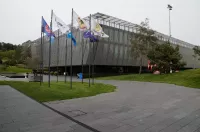
FIFA the F d ration Internationale de Football Association is...
Trending
43 minutes ago Cavaliers Aim for Seventh Straight Win Against Hornets: Odds and Predictions
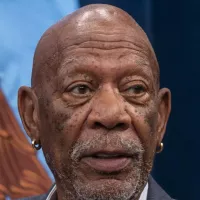
44 minutes ago Morgan Freeman's post to Trump and appearance with Neve Campbell on The View.

44 minutes ago Brendan Fraser portrays Eisenhower facing D-Day pressure in the new 'Pressure' trailer.
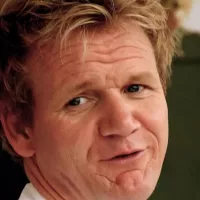
44 minutes ago Gordon Ramsay Addresses Bullying Claims, Praises Adam Peaty, Celebrates Daughter's Engagement
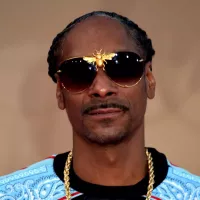
44 minutes ago Snoop Dogg's Credit Card Declined, Repays Milan Restaurant with Winter Olympics Tickets
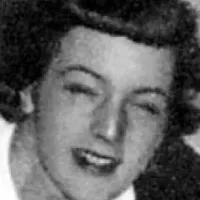
2 hours ago Tenley Albright celebrates 70 years since her 1956 Olympic gold skating victory.
Popular

Jesse Jackson is an American civil rights activist politician and...
Randall Adam Fine is an American politician a Republican who...

Barack Obama the th U S President - was the...

Ken Paxton is an American politician and lawyer serving as...

Bernie Sanders is a prominent American politician currently serving as...

Pam Bondi is an American attorney lobbyist and politician currently...